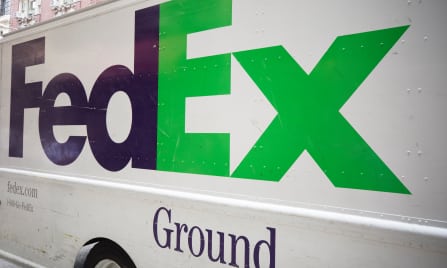 On Wednesday, the Ninth Circuit Court of Appeals in California ruled that 2,300 individuals working for FedEx Ground in California from 2000-2007 and Oregon from 1999-2009 were misclassified as independent contractors instead of employees.
On Wednesday, the Ninth Circuit Court of Appeals in California ruled that 2,300 individuals working for FedEx Ground in California from 2000-2007 and Oregon from 1999-2009 were misclassified as independent contractors instead of employees.
According to FedEx, the model that the court reviewed is no longer in use. Since 2011, the company said, FedEx Ground has only contracted with incorporated businesses which treat their drivers as employees. FedEx is reviewing the decision and considering an appeal before the Ninth Circuit.
Judge William Fletcher wrote the opinion for twin class actions involving FedEx drivers in California (Alexander vs. FedEx) and Oregon (Slayman vs. FedEx).
As a result of the decision, FedEx may owe the workers hundreds of millions of dollars for shifting costs to them for things like FedEx-branded trucks, uniforms and scanners, as well as for missed meal and rest period pay, overtime compensation, benefits and penalties.
“We fundamentally disagree with these rulings, which run counter to more than 100 state and federal findings – including the U.S. Court of Appeals for the D.C. Circuit – upholding our contractual relationships with thousands of independent businesses,” said FedEx Ground Senior Vice President and General Counsel Cary Blancett in a prepared statement. “The operating agreement on which these rulings are based has been significantly strengthened in recent years, and we look forward to continuing to work with service providers across our network to provide customers the industry’s most reliable service.”
There are a number of other class actions by contract FedEx drivers in other states seeking employee status, which could ultimately be affected by the outcome of the California ruling.
John Haber, founder and CEO of logistics consultancy Spend Management Experts, said UPS would be a big winner should the ruling hold up under appeal, as the rival carrier has been lobbying to have FedEx drivers classified as employees.
Haber estimated FedEx saves over $1 billion per year in labor costs because drivers are not classified as employees, while all UPS drivers are employees represented by the Teamsters Union.
“UPS spent a lot on Capitol Hill trying to get FedEx drivers reclassified,” Haber said. “It’s a strategic objective for them. This decision could impact a lot of other transportation companies that use contractors, including regional carriers.”
In 2009, UPS and the Teamsters spent millions in an effort to have language added to the FAA reauthorization act that would have put FedEx Express drivers under the jurisdiction of the National Labor Relations Act, which also covers UPS drivers. The effort, which FedEx facetiously referred to as the “Brown Bailout,” would have made it easier for FedEx drivers to unionize. It failed as the language was not included.
It’s been a bad summer PR-wise for FedEx. In addition to the contractor ruling, the company is facing federal charges filed in July that it broke the law by knowingly shipping prescription drugs ordered from online pharmacies to anyone who filled out an online form. Last week, a related federal indictment charged that FedEx was involved in money laundering in connection with the drug shipments. The company denies any wrongdoing and is fighting the charges.
If FedEx is found guilty, the Justice Department says it faces a potential maximum fine of twice the revenues it made on the pharmaceutical business, or about $1.6 billion. FedEx disputes the figure, saying it earned far less than $800 million from the shipments.
